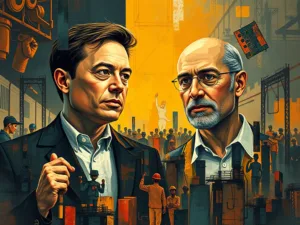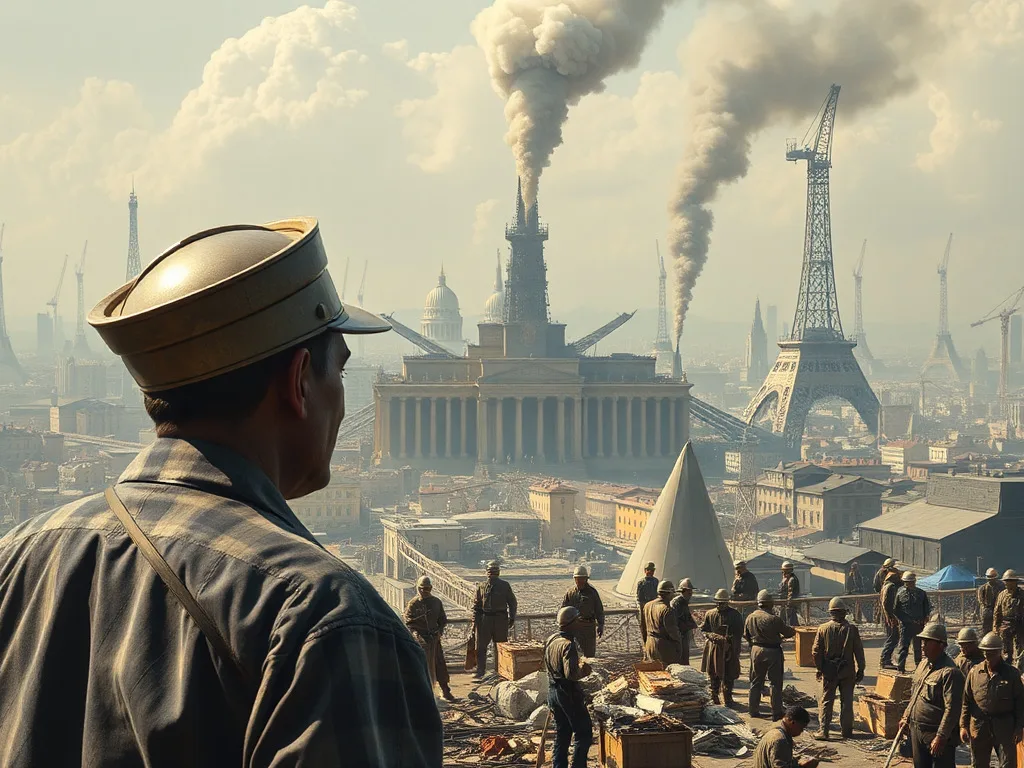A Modern Analysis of Globalization, Income Inequality, and the Climate Crisis
Introduction to Marx on Late Stage Capitalism
Marx on Late Stage Capitalism. Karl Marx’s concept of “late stage capitalism” captures a system where capitalism’s inner contradictions produce unsustainable levels of exploitation, economic disparity, and alienation. Marx believed that unchecked

capitalism would eventually reach a critical breaking point.
Observing the issues of today—income inequality, an alienated working class, and the rising influence of a few billionaires—suggests that Marx’s theories remain relevant. Modern issues like globalization and climate change demonstrate how late-stage capitalism impacts the world. By comparing Marx’s ideas to current economic and environmental challenges, we can better understand the dynamics driving inequality and other pressing problems in our society.
Marx on Late Stage Capitalism and Globalization
Globalization intensifies some of the core criticisms that Marx aimed at capitalism. Marx observed that capitalists relentlessly pursue profit, expanding into new markets and finding cheaper labor and resources. Today’s globalized economy achieves exactly that by allowing corporations to move production to countries with lower wages, minimal regulations, and fewer worker protections.

As Marx predicted, this benefits corporations while widening the gap between wealthy owners and underpaid workers. Consider the working conditions in factories in countries like Bangladesh or Vietnam. Multinational companies exploit workers in these countries to keep costs low, thus maximizing profits. For instance, workers in a Bangladeshi garment factory might earn less than $100 per month, while the clothing they produce sells for many times their monthly wage. This practice fuels inequality and diminishes the quality of life for workers around the world, a clear outcome of the drive for profit that Marx critiqued.
Globalization also impacts Western economies, where job offshoring has decimated certain industries, especially manufacturing. In the United States and Western Europe, entire towns once anchored by local factories now face economic devastation. As manufacturing jobs disappear, workers in these regions feel increasingly alienated from meaningful employment. Without the stability that previous generations enjoyed, people struggle to support their families, leading to economic and psychological impacts that echo Marx’s warnings.
Marx on Late Stage Capitalism and Income Inequality
Marx argued that capitalism would result in vast disparities of wealth. Today’s economy, where wealth is concentrated among a tiny elite, confirms his predictions. According to Oxfam, the world’s richest 1% own more wealth than the remaining 99% combined. Figures like Jeff Bezos, Elon Musk, and Bernard Arnault collectively control hundreds of billions of dollars. Marx suggested that

capitalist economies naturally funnel wealth upward, creating economic divides that become increasingly difficult to bridge.
This concentration of wealth isn’t merely statistical; it affects everyday life. For example, while billionaires possess immense resources, many Americans live paycheck to paycheck, lacking adequate access to health care, housing, and education. This disparity creates two different worlds within the same society—one of luxury and influence, the other of precarity and exclusion. The resulting inequality fosters social unrest and threatens the foundations of democracy, as those with wealth hold disproportionate influence over political decisions.
Alienated Labor in Marx on Late Stage Capitalism
Alienation, another core concept in Marx’s theory, refers to how workers feel disconnected from the products of their labor, from themselves, and from their communities. Marx argued that capitalism forces workers to become mere cogs in a profit-driven machine, stripping away their individuality and purpose. We can see this today in the “gig economy,” where workers take on multiple jobs without job security or benefits. Gig economy platforms such as Uber and DoorDash often position themselves as empowering. However, many drivers and delivery workers report low pay, lack of benefits, and high stress.
In office environments, automation and artificial intelligence now play a significant role in making certain jobs redundant. Workers may now spend hours performing repetitive tasks without understanding their purpose. This leads to feelings of disconnection and psychological strain, as seen in the tech industry’s high rates of burnout. Marx saw this alienation as a feature of capitalism, where people feel they are merely working to survive rather than pursuing fulfilling lives.
The Environmental Crisis and Marx on Late Stage Capitalism
One aspect Marx may not have foreseen directly is the environmental impact of unchecked capitalism, but his critiques of unrestrained profit-seeking apply. The drive for profit leads corporations to exploit natural resources irresponsibly, causing pollution, deforestation, and carbon emissions. Climate change is a direct result of this exploitation, as fossil fuel companies and other polluters prioritize short-term profits over long-term environmental health.
For example, oil companies like ExxonMobil and Chevron have known about the dangers of carbon emissions for decades. However, rather than reducing their environmental impact, they funded misinformation campaigns to protect their interests. The consequences of such actions are felt worldwide, especially by vulnerable populations in coastal and equatorial regions facing rising sea levels and extreme weather events. This behavior exemplifies Marx’s idea of capitalist systems prioritizing profit over people’s welfare and even their survival.
Marx on Late Stage Capitalism and Political Corruption
Marx criticized how capital consolidates power and shapes political systems to serve its interests. Today, billionaires have immense influence over Western political systems, especially in the United States. The Citizens United ruling by the U.S. Supreme Court allows unlimited corporate donations to political campaigns, meaning that wealthier individuals and corporations can significantly impact elections. This has allowed tech magnates, oil tycoons, and pharmaceutical executives to influence policies that benefit their industries, often to the detriment of working-class citizens.
This dynamic drives political decisions that seem disconnected from the needs of ordinary people. For instance, instead of focusing on health care reform, lawmakers often push policies that benefit the wealthiest Americans. This cycle of influence creates a political landscape dominated by elites, leaving ordinary citizens feeling powerless—a condition Marx described as inevitable under late-stage capitalism.
Pragmatic Applications of Marx on Late Stage Capitalism
Understanding Marx’s critique of late-stage capitalism can guide efforts to address these issues practically. For example, promoting policies that tax wealth more fairly and reinvest in public services like education and health care would help counteract income inequality. Reinvigorating labor unions and promoting fair wages would alleviate some of the alienation workers experience in today’s gig economy. Furthermore, stricter environmental regulations could help curb the environmental damage caused by corporate greed.
Policies that prioritize people over profit could also counterbalance the overwhelming political influence of billionaires. Campaign finance reform, for instance, would help restore democratic representation by reducing the sway of wealthy donors in elections. Similarly, worker-owned businesses, which emphasize collective ownership over hierarchical control, align more closely with Marx’s vision for a fairer economic structure.
Sources Cited
- Oxfam. (2021). The inequality virus: Bringing together a world torn apart by coronavirus through a fair, just, and sustainable economy. Oxfam International.
- Harvey, D. (2014). Seventeen contradictions and the end of capitalism. Oxford University Press.
- Foster, J. B. (2002). Ecology against capitalism. Monthly Review Press.
- United Nations. (2022). World Social Report 2020: Inequality in a rapidly changing world. United Nations.
- Phillips, A. (2015). Unconventional oil: The risk of land and water grab. World Bank.
Suggestions for Further Reading
- Marx, K. (1887). Capital: A Critique of Political Economy. A foundational text on capitalism’s mechanics and crises.
- Piketty, T. (2014). Capital in the Twenty-First Century. Analysis of wealth inequality trends in modern capitalism.
- Harvey, D. (2007). A Brief History of Neoliberalism. Explores the political and economic consequences of neoliberalism.
- Stiglitz, J. E. (2012). The Price of Inequality. Examines the causes and effects of inequality in the U.S.
- Foster, J. B. (2000). Marx’s Ecology. Analyzes Marx’s ideas in relation to modern environmental issues.
- Klein, N. (2014). This Changes Everything: Capitalism vs. The Climate. Argues that capitalism conflicts with sustainable environmental policies.
- Sassen, S. (2001). The Global City. Explores how globalization reshapes cities and inequality.
- Hedges, C. (2009). Empire of Illusion: The End of Literacy and the Triumph of Spectacle. Critiques modern capitalism’s cultural effects.
- Graeber, D. (2018). Bullshit Jobs: A Theory. Discusses the modern phenomenon of meaningless work and its implications for workers.
Disclaimer: The images and videos in this post are AI-generated creations, intended purely for illustrative and conceptual purposes. They are not real-life representations and should not be interpreted as such. Their sole purpose is to offer a visual means of exploring the topics discussed in this post.




